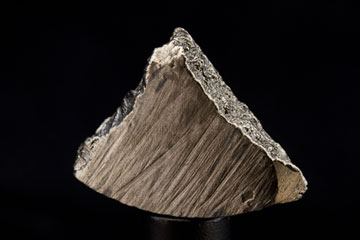
(2 of 4)
Refining rare earths is a complex and environmentally hazardous process that few companies attempt. A single California mine at Mountain Pass, 55 miles (88 km) south of Las Vegas, was the leading global source of rare-earth elements from the 1960s until the early 1980s. As prices stagnated and the cost of meeting environmental regulations rose in the U.S., production dwindled. In the 1980s, China's share of the rare-earth industry soared as it took advantage of its low labor costs and new economic reforms. By 1986, its production of rare earths surpassed that of the U.S. China's then paramount leader, Deng Xiaoping, urged the industry on further in 1992, declaring that the nation "must make full use of its advantage in rare-earth resources." In 2002, Mountain Pass was shuttered. China now produces 95% of the global supply.
For years, the world was happy to leave this messy business to China. But with environmental fears on the rise, China has recently grown concerned about the impact of mining and refining rare earths, and it is increasingly unwilling to earn low returns on a product for which it holds a nearly complete monopoly. Starting in 2006, the Chinese government began to slowly decrease the amount of rare-earth elements that domestic producers were allowed to export. In 2010 Beijing slashed its quotas by 40%, putting the amount Chinese producers were allowed to export far below global demand.
Most dramatically, China stopped delivery of rare earths to Japan for two months--a move widely seen as connected to an ongoing territorial dispute over a group of uninhabited islets in the East China Sea near strategic shipping lanes. "China recognized that rare earths would be a great political tool to negotiate with the Japanese government because they know that Japan is the largest single market for Chinese rare earths," says Nick Kotaki, managing director of Material Trading Co., a Tokyo-based rare-earth importer. "Japanese companies hadn't prepared enough and didn't keep a reasonable level of stock, so Japanese companies really panicked. The effect was far more than the Chinese expected."
The metals markets went crazy as the prices of rare earths soared to unprecedented highs, rising 300% to 1,000% depending on the element, according to Dudley Kingsnorth, a professor at Curtin Graduate School of Business in Perth, Australia. "I like to call 2010 the line in the sand," he says. "When China reduced those export quotas [to] less than demand, that's when prices went up, and there were dramatic increases."
Outsmarting China
Investors and entrepreneurs scrambled to come up with business plans for mining rare earths anywhere but China. Molycorp, a Colorado-based company that invested more than $500 million to reopen Mountain Pass, saw its share price grow sixfold in less than a year. "For a while there it got ridiculous. You just had to put 'rare earths' in the name of a company and you could do $20 million in equity financing," says Donald Bubar, CEO of Toronto-based Avalon Rare Metals, which hopes to begin producing heavy rare earths from its mine on Thor Lake in the Northwest Territories by 2017. "You had a huge surge of capital, hundreds of companies raising capital to chase rare earths."
